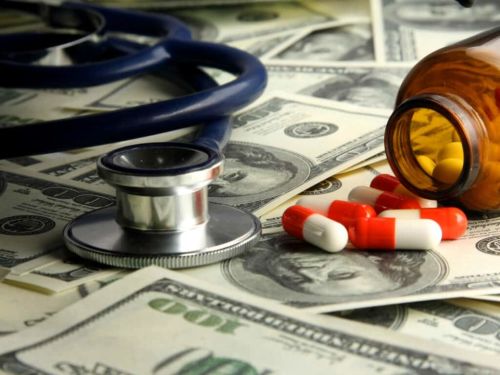Healthcare, Medical Debt, and Bankruptcy

According to a February 2020 study, “Almost a third of working Americans currently have some kind of medical debt and about 28% of those who have an outstanding balance owe $10,000 or more on their bills.” Knowing this, it comes as no surprise that of those who elect to file for bankruptcy to alleviate their financial burden, two-thirds say that medical debt leads to their financial downfall.
Growing Medical Debt Serves As Catalyst For Financial Hardships
While no singular event can be the cause of bankruptcy, multiple life-events, financial patterns, and family changes can result in one event sparking the decision to file for bankruptcy. Due to the rising cost of medical care and out-of-pocket expenses, many families say that medical debt was deemed the final straw for filing bankruptcy.
In 2015, a study by the Kaiser Family Foundation found that medical bills pushed 1 million adults to declare bankruptcy. While changes in healthcare laws were thought to help reduce the financial burden of healthcare, still the number rose. If you are facing growing medical debts, you may wonder if bankruptcy can help. Here are a few things you need to consider.
Can medical debt be liquidated or dissolved during bankruptcy?
When you file for bankruptcy, the biggest determinant for your medical debts will rest on which form of bankruptcy you file. Though both forms will discharge or combine debts into a payment plan, there are exceptions to each.
Medical Debts and Chapter 7 Bankruptcy
In general, medical debts will be discharged under Chapter 7 bankruptcy filings. There is no limit on the amount of medical debt you can discharge, including the medical bills you paid on credit cards.
Remember, if your income does not pass the means test, you will have to see if you qualify for Chapter 13.
Medical Debts and Chapter 13 Bankruptcy
If you do not qualify for Chapter 7 bankruptcy, you may decide to declare Chapter 13 and devise a repayment plan. In general, the medical bills accumulated will be combined with other unsecured debts in your repayment plan. However, your medical debts cannot exceed Chapter 13 limits on debts.
Medical Debts Have You Falling Behind? Call the Jones Law Firm
It’s no secret that medical debts impact so many Ohioans and Americans every day. But when your medical debts begin to cause financial ruin over your life, you may wonder what options you have to get back on your feet. The Jones Law Firm works with families in Franklin County and the Columbus, Ohio area to regain financial independence.
If you are facing financial difficulties and are considering bankruptcy, The Jones Law Firm is here to help. If you live in Columbus or central Ohio and are experiencing financial distress, we encourage you to contact The Jones Law Firm for a free consultation about how we can help determine whether Chapter 7 or Chapter 13 bankruptcy is right for you. Don’t delay. Your financial future begins now.


